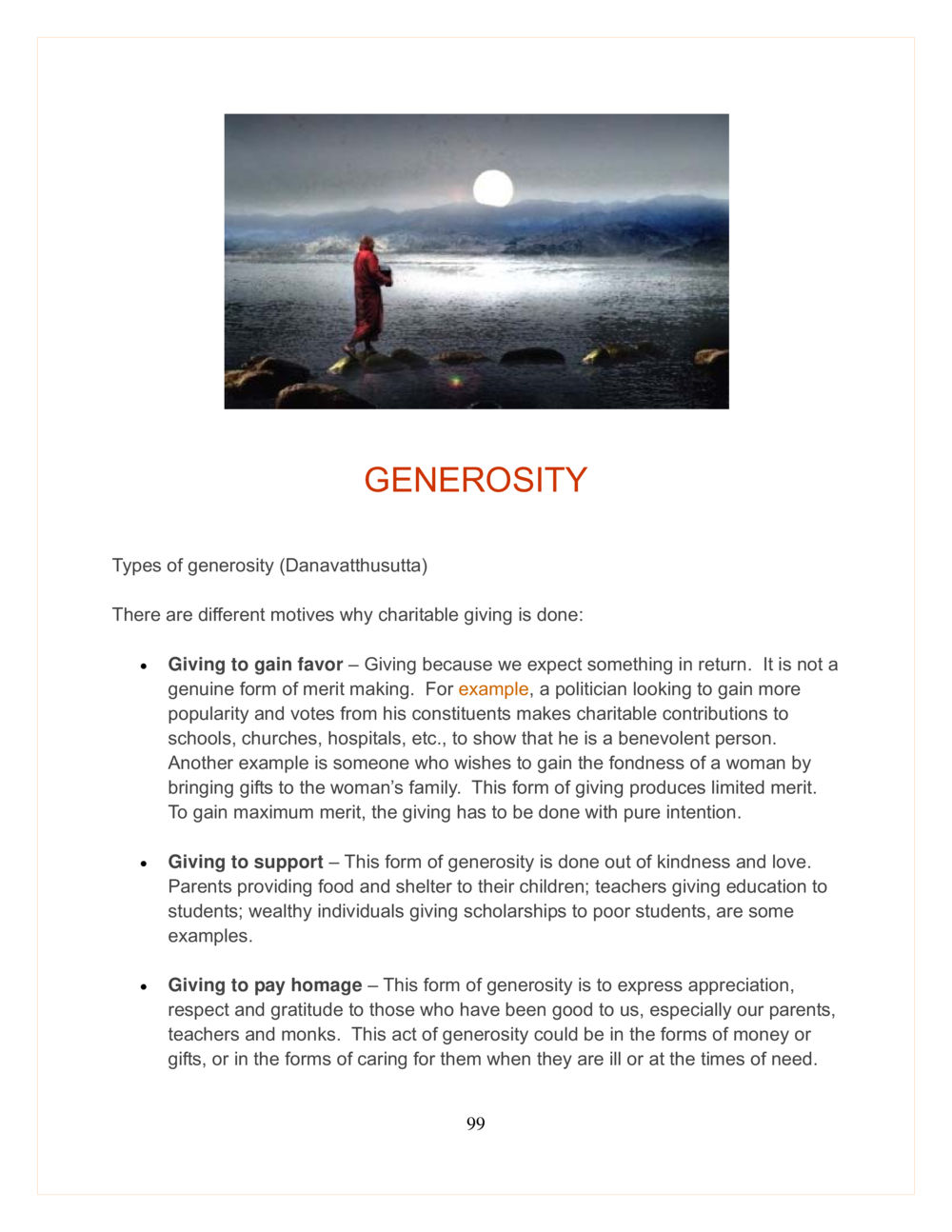Types of Generosity: Understanding Charitable Giving : หน้า 99/115
DMC Translor’s handbook : หน้า 99/115 Explore the different motives behind charitable giving, from seeking favor to genuine support and homage.
0 ครั้ง

สรุปเนื้อหา
This text discusses various motives for charitable giving as outlined in the Danavatthusutta. It identifies three main types of generosity: giving to gain favor, which is insincere and often seeks something in return; giving to support, which is rooted in kindness and love; and giving to pay homage, which expresses gratitude and respect towards those who have positively influenced our lives. The text emphasizes that for one to achieve maximum merit from giving, it should come from pure intentions rather than self-interest. Danavatthusutta highlights these distinctions to guide individuals towards more meaningful acts of generosity, encouraging a shift from superficial to genuine contributions for the welfare of others.
หัวข้อประเด็น
-Types of generosity
-Motives behind charitable giving
-Impact of intention in giving
-Examples of generous acts
-Distinction between genuine and insincere generosity



















































































































